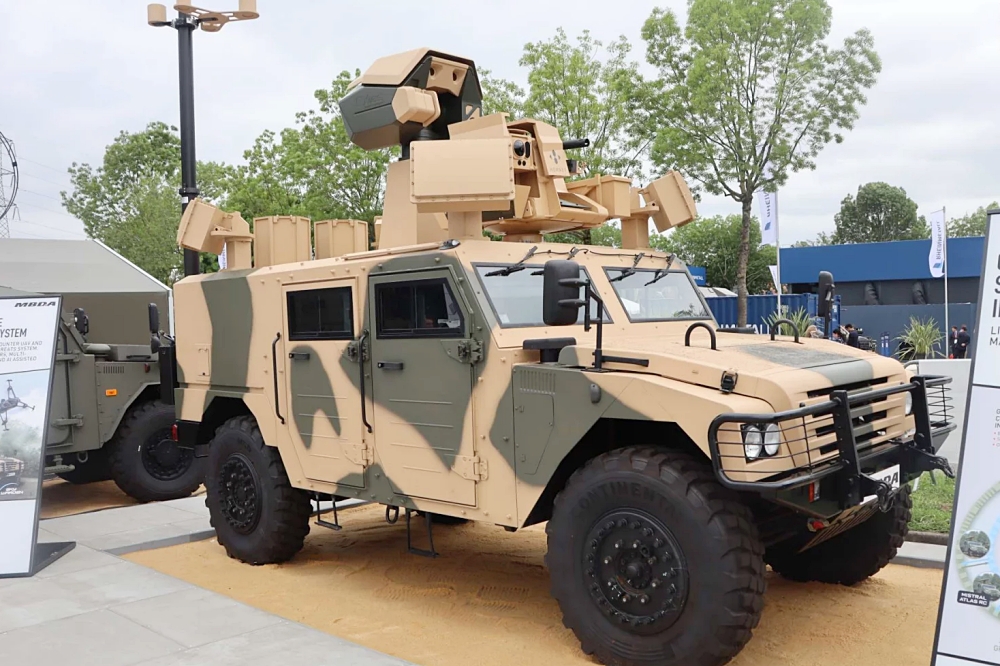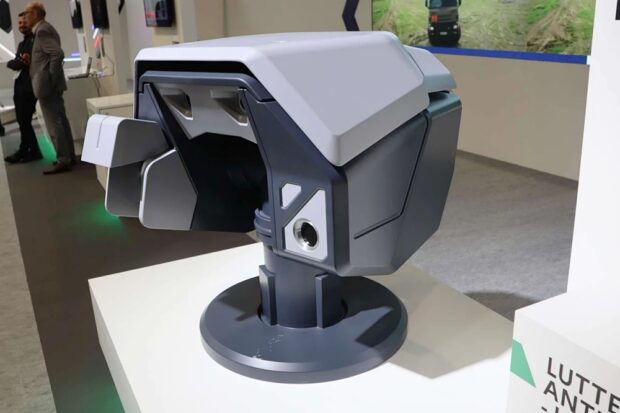The Paris Olympic and Paralympic Games will see the deployment of advanced anti-drone systems, including the Helma-P laser system developed by the Compagnie industrielle des lasers (CILAS). This technology will be integrated into the specially designed aerial security apparatus for the event.
The PARADE system (Programme de protection déployAble modulaiRe Anti-DronEs), developed by Thales and CS Group, has overcome initial challenges during the Coubertin 1 and 2 trials. After critical revisions required by the Directorate General of Armaments (DGA) and the Senate Foreign Affairs and Armed Forces Committee, the system appears ready for action.
Helma-P, a key component of the PARADE system, is a directed energy weapon designed to neutralize small and micro-sized drones within seconds, through dazzling or physical destruction. A prototype of this system was successfully tested on the Forbin air defense frigate and was recently presented by the Minister of the Armed Forces, Sébastien Lecornu, at the Villacoublay air base.
General Arnaud Bourguignon, in charge of aerial security for the Games, emphasized the importance of this technology in facing potential threats of terrorism, protest, or individuals attempting to film events with their drones.
“We are preparing to face all threats,”
he stated, adding that the apparatus will represent 20,000 hours of surveillance during the Games.
In practice, the Helma-P system, mounted on a Sherpa Light vehicle, can detect, track, and neutralize drones up to a distance of 1,000 meters. Its effectiveness is estimated at 100%, although it is weather-dependent.
Furthermore, the deployed systems, including Helma-P, will be interconnected via the SAP (Shared Aerial Situation) software, developed by the National Office for Aerospace Studies and Research (ONERA) and Thales. This software allows for the synthesis of data from various sensors for optimized management of security operations in real time.

Cilas High-Tech Helma-P Laser Counter-Drone System mounted on Sherpa Light vehicle (Picture source: Army Recognition)
The Helma-P system stands out as a high-performance neutralization solution for aerial threats such as UAVs. Designed to operate effectively in both operational theaters and urban environments, this counter-air measure system can detect, identify, follow, and neutralize agile targets with extreme precision. This technology offers a decisive operational advantage to the forces equipped with it.
The extended range of Helma-P allows for effective operations over distances ranging from one to several kilometers. The system offers a progressive effect, capable of transitioning from optical jamming to neutralization or even total destruction of the target, thus providing significant tactical flexibility. Additionally, Helma-P is particularly economical in terms of logistics, requiring no ammunition and incurring zero firing costs, making it ideal for prolonged field use.
In terms of discretion, Helma-P is both invisible and silent, allowing operators to conduct missions without alerting the adversary or disturbing the surrounding environment. The surgical precision of laser impact point control on the target also ensures precise and controlled neutralization, minimizing collateral damage.
Helma-P is also capable of targeting a variety of threats, including drones of all sizes, robots used in military or security operations, and enemy radar systems, compromising their surveillance and defense capabilities. It can also remotely disable improvised explosive devices (IEDs), thereby reducing the risk to demining teams, and offers defense against long-range projectile attacks such as rockets, artillery, and mortars.
Thus, Helma-P represents an essential component of modern defense strategies, combining cutting-edge technology and advanced operational capabilities to effectively protect against a wide range of threats.
Top Photo: Cilas High-Tech Helma-P Laser Counter-Drone System – Army Recognition
Source: Army Recognition

